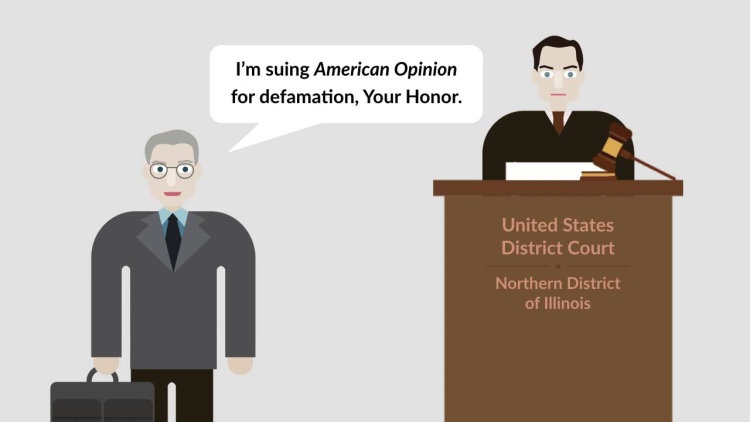Gertz v. Robert Welch, Inc.
United States Supreme Court
418 U.S. 323, 94 S. Ct. 2997, 41 L. Ed. 2D 789 (1974)
- Written by Megan Petersen, JD
Facts
The Nelson family hired Elmer Gertz, a prominent Chicago attorney, to bring a civil suit against a Chicago police officer. Previously, the officer had been criminally prosecuted for killing the Nelsons’ son. During the course of litigation, Gertz was featured in a magazine called American Opinion. Gertz had little to do with the police officer’s criminal prosecution, but the article accused him of masterminding the whole thing. The magazine claimed it was a frame-up of the police officer, as part of a vast conspiracy to discredit law enforcement. Many of these statements were blatantly false, and the magazine’s managing editor published the material without attempting to verify its truth. Gertz sued the magazine for defamation in federal district court, claiming damage to his reputation as both an attorney and a citizen. After a jury awarded Gertz $50,000 in damages, the publisher filed a motion for judgment notwithstanding the verdict. The court granted the motion, applying the standard articulated in New York Times v. Sullivan. That case held that a public official must prove that a falsehood was published with actual malice, i.e., with knowledge that it was false or reckless disregard for whether it was true or false. The district court found that Gertz could not meet that standard and issued a judgment in favor of the publisher. The appellate court affirmed, and the United States Supreme Court granted certiorari.
Rule of Law
Issue
Holding and Reasoning (Powell, J.)
Concurrence (Blackmun, J.)
Dissent (White, J.)
Dissent (Douglas, J.)
Dissent (Brennan, J.)
What to do next…
Here's why 904,000 law students have relied on our case briefs:
- Written by law professors and practitioners, not other law students. 47,100 briefs, keyed to 995 casebooks. Top-notch customer support.
- The right amount of information, includes the facts, issues, rule of law, holding and reasoning, and any concurrences and dissents.
- Access in your classes, works on your mobile and tablet. Massive library of related video lessons and high quality multiple-choice questions.
- Easy to use, uniform format for every case brief. Written in plain English, not in legalese. Our briefs summarize and simplify; they don’t just repeat the court’s language.





